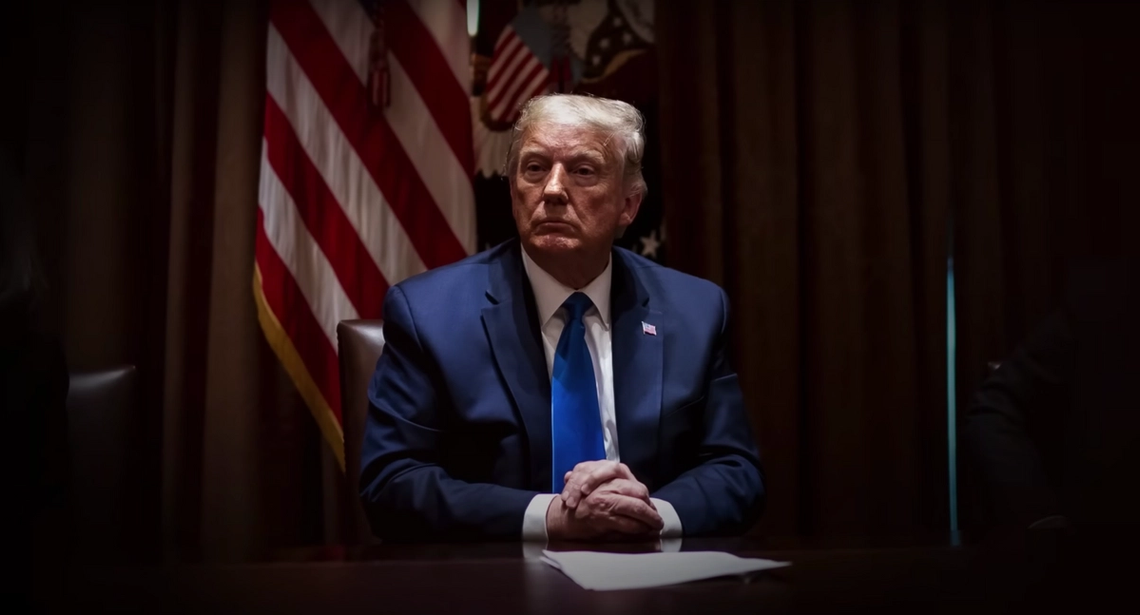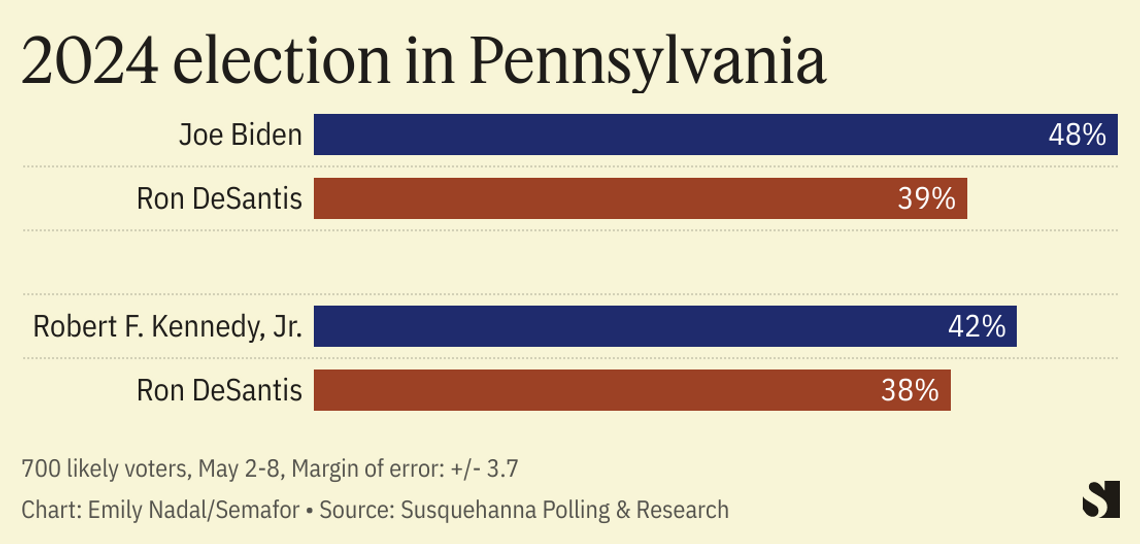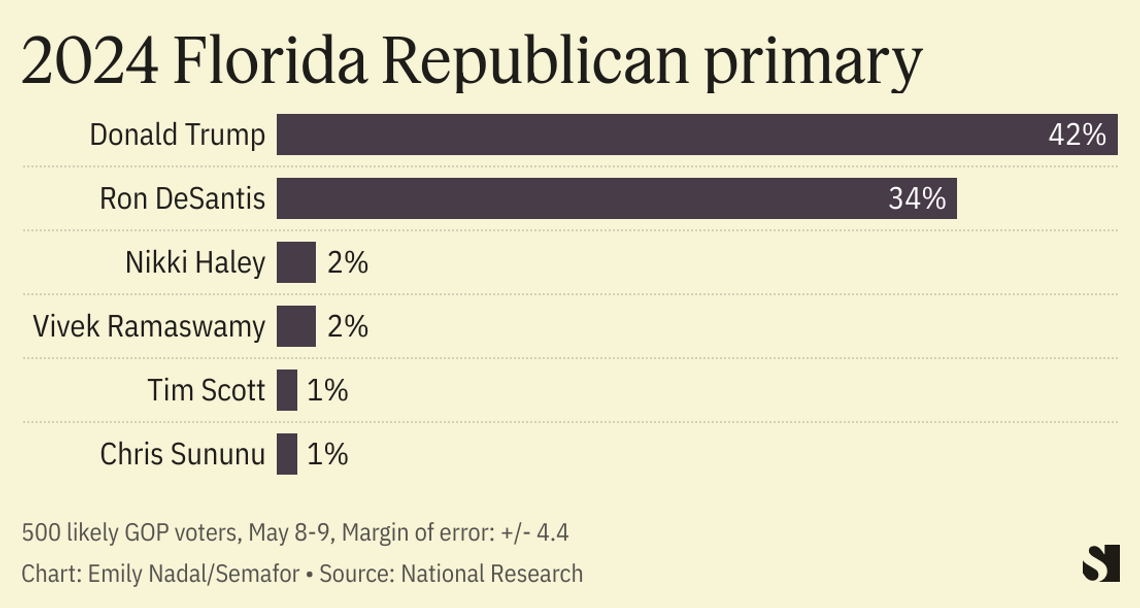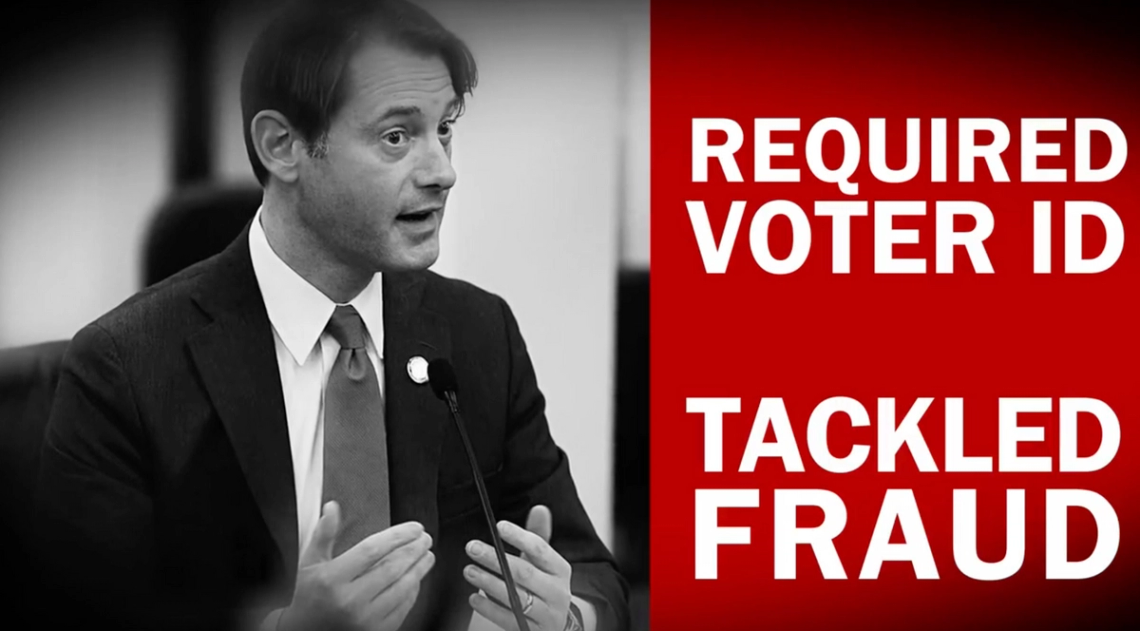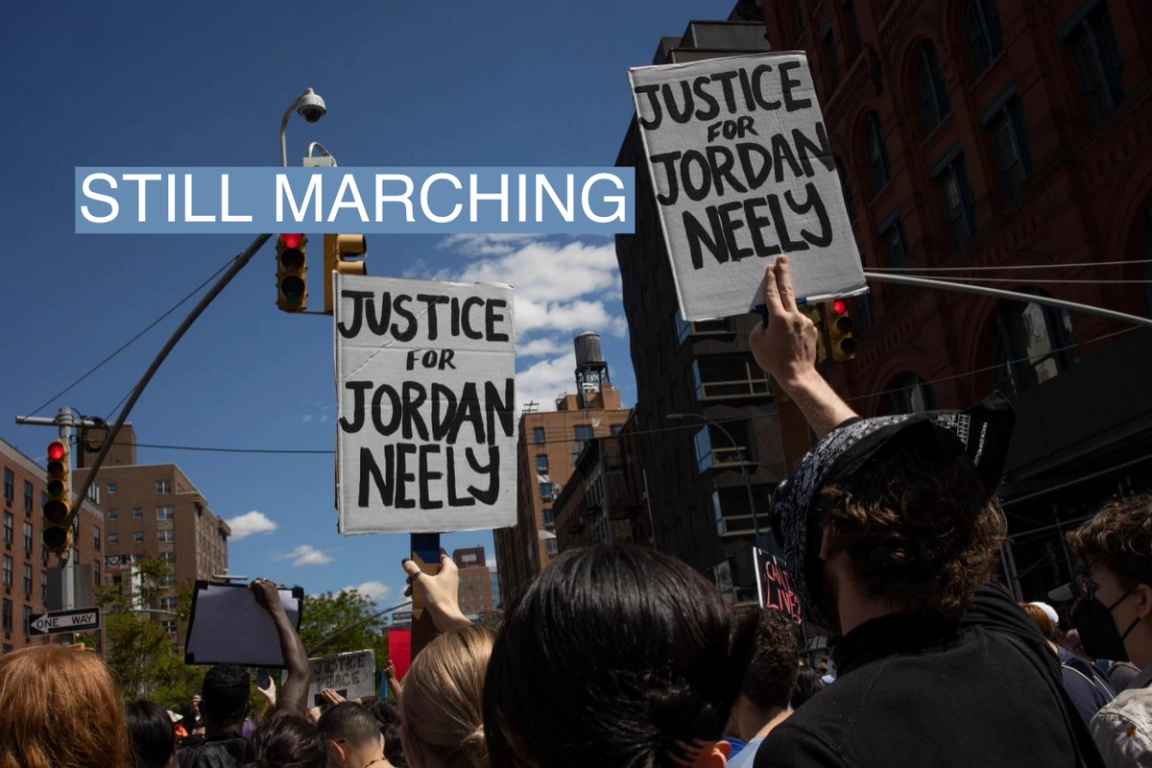 Andrew Lichtenstein/Corbis via Getty Images Andrew Lichtenstein/Corbis via Getty ImagesTHE NEWS The young Marine veteran who killed Jordan Neely will be charged with second-degree manslaughter today, nearly two weeks after putting the homeless subway performer who was reportedly shouting on a train in a deadly chokehold. A few days earlier, San Francisco supervisors urged the city’s district attorney to release video evidence in the killing of Banko Brown, a homeless man shot by a security guard while allegedly shoplifting from a Walgreens. DAVID’S VIEW The response to both killings, from Democrats leading overwhelmingly Democratic cities, was conflicted — and a study in how the party changed in the three years since the murder of George Floyd inspired a massive protest movement for criminal justice reform. “Two things can be true,” said California state Sen. Scott Wiener, who represents San Francisco. “People are definitely frustrated with property crime and some of the conditions on our streets. And people don’t want to see other people get shot.” New York Mayor Eric Adams, whose initial reaction to Neely’s killing infuriated progressive activists by not condemning his killer, used a speech on Thursday to repeat that mentally ill people who posed a danger to themselves should be involuntarily confined, a position opposed by the New York Civil Liberties Union. “If physicians… find that the person has a mental illness, and is dangerous to themselves or others, they have the authority to admit that person and retain them for treatment, even if the person does not agree to it,” Adams said from city hall. That response, said the NYCLU, “only fuels stigma against homeless New Yorkers and those living with mental illness.” In San Francisco, activists and left-leaning Democrats have condemned DA Brooke Jenkins for her handling of the Brown case — the killing of a Black trans man who had tried and failed to get supportive housing. Jenkins, appointed by Mayor London Breed after voters recalled reform DA Chesa Boudin, initially said that the security guard who shot Brown “believed he was in mortal danger and acted in self-defense.” Brown’s advocates say those words could matter even if a case is eventually brought against the guard, possibly prejudicing a jury. “You can be a defense attorney with one brain cell, and you can blow up that statement from the district attorney,” supervisor Dean Preston said at the board’s public meeting this week, before the vote to urge the video’s release. Adams and Jenkins were put in office by Democratic voters frustrated about crime and worried that liberal reformers were making it worse — Adams in a crowded mayoral primary, Jenkins after the Boudin recall. (She won re-election in her own right last November.) Adams defeated a more left-leaning field while talking about a return to police tactics that civil libertarians had sued over; Jenkins won after saying that her city was tired of being “made fun of in the news across the country, because of the crime situation.” Conservatives drove that backlash, too, and right wing media has been all over the Neely story, with many commentators noting the dozens of times he had been arrested. Some have portrayed his attacker, Daniel Penny, as a hero — much like the vigilante Bernard Goetz, who became a polarizing household name after he shot four Black teenagers on a subway in 1984. But they’ve also been a little slow to see that the movement that filled the streets in 2020 and that Republicans still criticize daily has lost ground and numbers, as elected Democrats got more nervous about rising crime rates and collapsing ridership on public transit. The protests over Neely’s killing and Brown’s killing have been small, relative to what cities saw after prior high-profile deaths of Black men and women at the hands of police or civilians. Reform advocates noticed the conflicted response by Democrats who embraced them three years ago. The Young Women’s Freedom Center, where Brown worked to help at-risk women and trans people, called for “the defunding of the police and juvenile carceral system” after he was killed, along with an end to “contracting of armed security” and the “false narrative” that was justifying the city’s police spending. In an interview, the group’s co-executive director Julia Arroyo said that young people were being victimized by media-driven panic about shoplifting: “Everything’s behind glass, you’re constantly followed.” And at a rally, Arroyo said that the city was “kidnapping us and they are locking us up in jails and institutions.” ROOM FOR DISAGREEMENT While much of the political conversation around Neely has focused on why he had not been either jailed or reached by social services earlier, the picture of what went wrong is murkier. He had been listed as a priority by city agencies, referred to a psychiatric hospital in the past, and even been forced into a treatment facility as part of an assault charge — there was a warrant out for his arrest after he fled the institution. Steve Berg, the chief policy officer at the National Alliance to End Homelessness, said that enforcement or treatment approaches would fall short without a path to transitional housing — something that cities have often struggled to do, in part because of local opposition to new facilities or programs. “The solution is largely to get people housed, so they’re not homeless, and to make treatment available on an immediate basis for anyone who wants it,” said Berg. “Most people do want it. But mental health treatment is not going to be effective for people who are living on the streets instead of permanent housing. That’s just the reality. There’s lots of research to back that up.” He added that some elected officials were creating a “very dangerous situation,” when they suggested that the killing of some homeless people might be justified. THE VIEW FROM DONALD TRUMP Homelessness has been an issue in the 2024 Republican primary, where candidates have cited it as proof of Democratic policy failures. Donald Trump has proposed banning “urban camping,” arresting violators, and giving them the option of treatment or prison. “The homeless have no right to turn every park and sidewalk into a place for them to squat and do drugs,” he said in a video last month. “Americans should not have to step over piles of needles and waste.” NOTABLE - In the Guardian, Sam Levin talks to friends and family mourning Brown, who was a fixture of the city’s trans district. “It hurts me that another trans person of color is gone without being seen,” Juju Pikes Prince, one close friend, said. “We can’t keep screaming and hollering for Black Lives Matter when we don’t all matter. My people are not free.”
- At Curbed, Bridget Read looks at Neely’s career as a Michael Jackson impersonator, where he was a well-known part of a community of Time Square performers in better times. “I was always in awe seeing him dance when I did,” one performer said.
| 



